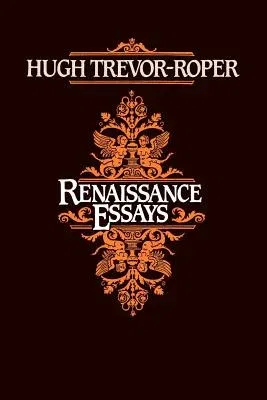Hugh Trevor-Roper's historical essays, published over many years in many
different forms, are now difficult to find. This volume gathers together
pieces on British and European history from the fifteenth to the early
seventeenth centuries, ending with the Thirty Years War, which
Trevor-Roper views as the great historical and intellectual watershed
that marked the end of the Renaissance.
Covering a wide range of topics, these writings reflect the many facets
of Trevor-Roper's interest in intellectual and cultural history.
Included are discussions of Renaissance Venice; the arts as patronized
by that "universal man," the Emperor Maximilian I; the court of Henry
VIII and the ideas of Sir Thomas More; the Lisle Letters and the
formidable Cromwellian revolution; the historiography and the historical
philosophy of the Elizabethans John Stow and William Camden; religion
and the "judicious Hooker," the great doctor of the Anglican Church;
medicine and medical philosophy, shaken out of its orthodoxy by
Paracelsus and his disciples; literature and Burton's Anatomy of
Melancholy; and the ideology of the Renaissance courts.
Trevor-Roper sets his intellectual and cultural history in a context of
society and politics: in realization of ideas, the patronage of the
arts, the interpretation of history, the social challenge of science,
the social application of religion. This volume of essays confirms his
reputation as a spectacular writer of history and master essayist.

